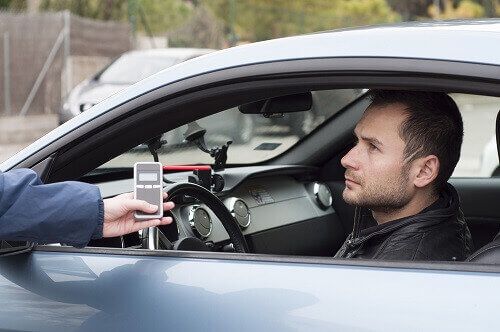
Attorney Robert F. Pirkle has been serving clients in Savannah and throughout Georgia with compassionate and effective legal representation since 1984.
Savannah Breath & Blood Test Lawyer
Defense for BAC Testing Refusal or Results in South Georgia
In DUI cases, the evidence most often used by prosecution involves blood, breath, and urine test results that help to clearly show how intoxicated an individual was at the time of arrest. It, however, is important to note that these cases have been proven time and time again to be often inaccurate—with results that can be skewed for a

wide variety of reasons, from improper testing procedures to medical conditions.
That being said, in the state of Georgia, you are legally required to consent to these tests; should you refuse, you could be facing serious legal consequences and it is imperative that you hire a skilled Savannah breath and blood test lawyer.
To learn more how The Law Offices of Robert F. Pirkle can help protect your legal rights for the refusal to take a blood, breath, or urine test, call us today at (912) 493-9506 or reach out online now.
About Chemical Testing for DUI
Understanding the BAC testing process can help you better understand the faults in the evidence presented against you. Our Savannah breath and blood test attorney understands the uncertainty of a chemical test and can provide the appropriate defensive strategies you need to ensure that your rights are being protected.
Breathalyzers
If you have been drinking, it is illegal to drive with a blood alcohol concentration (BAC) of .08% or higher. One way police officers can check your BAC level is through a breathalyzer. But blowing into a breathalyzer is not a perfect way to determine the BAC level of a driver, and often the results can be dramatically altered by certain factors. Our DUI firm can help determine whether or not the test was administered correctly or if the results did not come back correctly.
Factors that can impact your BAC breath:
- The number of people who have used it before you (it needs to be less than 150)
- Using mouthwash before
- Food that you ate earlier that day
- If you just drank alcohol
- Smoking or chewing gum
- Vomiting before you drove
Blood Tests
Blood tests, like breath tests, can help an officer determine the BAC level of a driver. Also like a breath test, blood test results aren’t always accurate. They are administered by a phlebotomist, making the process seem very scientific and professional. The truth is, a blood test can be completely false.
A blood test can:
- Have a contaminated sample
- Be mixed incorrectly
- Display different results for different samples
Why Breath and Blood Tests Can Be Challenged
Both breath and blood tests are not foolproof, and there are several common issues that can arise with these tests that may provide grounds for challenging the results in a DUI case. A skilled Savannah breath and blood test attorney will carefully evaluate the circumstances surrounding your case to identify any weaknesses in the evidence.
Some potential issues with breath and blood tests include:
- Improper Administration: For breath tests, law enforcement officers must follow strict procedures to ensure that the test is administered properly. Failure to observe the required waiting period (typically 20 minutes), improper calibration of the testing equipment, or not following proper protocols can lead to inaccurate results. Similarly, for blood tests, mishandling of the sample, contamination, or improper storage can render the results unreliable.
- Health Conditions Affecting Results: Individuals with diabetes, acid reflux, or GERD (gastroesophageal reflux disease) may have elevated breath alcohol readings due to the presence of alcohol in their stomach. These medical conditions can lead to false positives in breathalyzer tests, and your Savannah breath and blood test attorney can work with medical experts to demonstrate how these conditions may have affected your results.
- Faulty Equipment: Breathalyzer devices must be regularly calibrated and maintained to ensure their accuracy. If a device is not properly calibrated, it may produce inaccurate results. Additionally, older or malfunctioning equipment can lead to unreliable readings.
- Refusal to Take a Test: In Georgia, drivers have the right to refuse a breath or blood test if they are arrested for DUI. However, refusing to take the test can result in serious consequences, such as the automatic suspension of your driver’s license.
- Contamination of Blood Samples: Blood samples must be properly handled, stored, and tested to avoid contamination, which could affect the accuracy of the results. If there is any indication that the blood sample was mishandled or improperly stored, this could be grounds for challenging the test results.
- Issues with Chain of Custody: Chain of custody refers to the documentation that tracks the handling and storage of evidence, including blood samples, from the time it’s taken until the time it’s analyzed in the lab. If there is a break or inconsistency in the chain of custody, the evidence may be inadmissible in court. A skilled Savannah breath and blood test lawyer will review the chain of custody records to identify any potential weaknesses or discrepancies that may undermine the integrity of the test results.


Consequences of Refusing to Take a BAC Test
Georgia has an “implied consent” law, which means should a police officer have probable cause to believe an individual is DUI, that individual must consent to a chemical test to determine their blood alcohol content (BAC). In these situations, the officer can decide what type of test you should take. Despite that, you have a choice to refuse—but that choice will have consequences.
If you refuse a BAC Test, the following can occur:
- The officer taking away your license and providing you with a 35-day permit.
- Within that 35 day window, you may request to challenge your suspension with a hearing.
- Should you not request that hearing, or if you challenge but lose, it will result in a one-year suspension of your license for a first offense.
- Within a month of your suspension, you will have the ability to get your drivers' license again by paying a $210 fee and completing a drug use and alcohol reduction program.
If you refuse twice within a five-year period, your license will be suspended up to three years. You will be able to apply for its reinstatement after a year and a half. For a third offense, the suspension will be for five years; you will be eligible to apply for a probationary license proceeding the first two years.
Learn More During a Free, Confidential Consultation
HEAR IT FROM OUR CLIENTS
-
I would like to thank you for everything you have done on behalf of me and my family.
Daniel C. -
Our family truly appreciates what you did for me.
Gag H. -
Best Choice in Choosing Robert F. Pirkle Law Firm.
John S.
-
Over 100 Jury Trials Involving Serious Crimes
-
Free Initial Consultations Offered
-
Highly Rated by Past Clients
-
Success from Both Sides of Court
-
Direct Attention from Your Attorney
-
More Than 35 Years of Experience
Whether you have questions or you’re ready to get started, our legal team is ready to help. Complete our form below or call us at (912) 493-9506.

